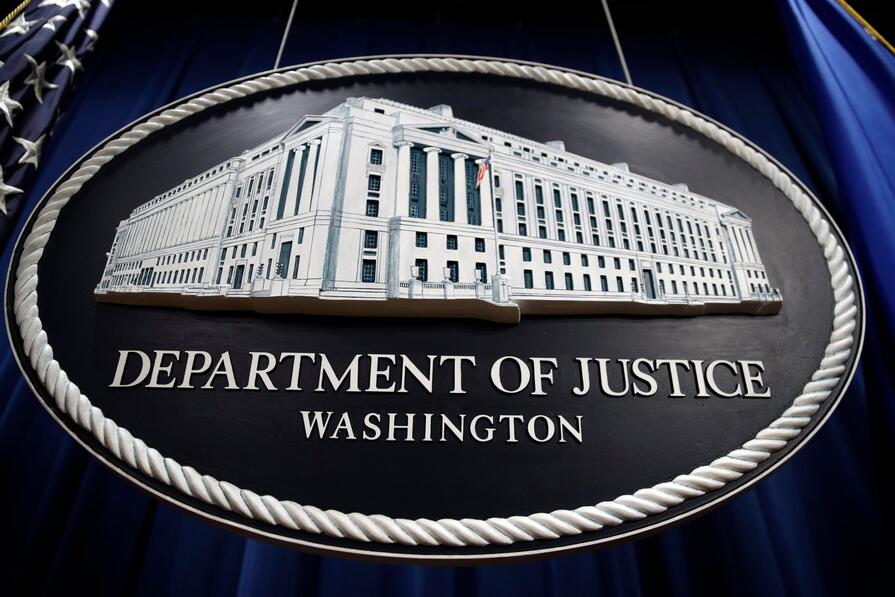Originally published in February 2021; updated January 3, 2022.
In November 2018 in the midst of the U.S.-China trade war, Attorney General Jeff Sessions launched the U.S. Justice Department's China Initiative. The initiative is part of the "all of government" response to China articulated by Vice President Mike Pence the month before. Sessions said the U.S. was "standing up to the deliberate, systematic, and calculated threats posed, in particular, by the communist regime in China, which is notorious around the world for intellectual property theft." He highlighted claims made in a report by the U.S. Trade Representative that the Chinese state sponsored hacking efforts of U.S. companies. The White House Office of Trade and Manufacturing Policy headed by Peter Navarro issued a report that spring describing intellectual property theft as an example of Chinese economic aggression. In February and November 2020, the Department reported on progress on the initiative. In May 2020, the administration issued a policy document on policy toward China. In July 2020, FBI Director Christopher Wray said the bureau was "opening a new China-related counterintelligence case about every 10 hours.” In November 2021, several months into the Biden administration, the Department issued this update on its China Initiative work. Many scholars have criticized how the initiative has been carried out (one letter critical of the initiative has more than 2,400 academic supporters). These include some who worry that intellectual property theft by China is a problem, but that the DOJ China Initiative is poorly and unfairly implemented and could negatively affect the willingness and ability of scholars of Chinese heritage to work in the U.S. or Americans of all ethnicities who may wish to work in China. Following the conviction of dismissed Harvard scholar Charles Lieber in December 2021, the Chronicle of Higher Education published this look into the case's possible importance.
Of course, for decades prior to the initiative, the U.S. government has been concerned with cyberespionage and intellectual property theft. For example, in 2011 the U.S. government issued a report on "Foreign Spies Stealing U.S. Economic Secrets in Cyberspace." In 2012, General Keith Alexander, head of the National Security Administration and U.S. Cyber Command, said that this theft represented "the greatest transfer of wealth in history." The issue was an important focus at the meeting between Presidents Barack Obama and Xi Jinping in California in 2013. That meeting coincided with the first of the Edward Snowden revelations about NSA intelligence gathering, including on Chinese firms and individuals. In 2014, the U.S. issued hacking and economic espionage indictments against five People's Liberation Army officers. Negotiations on this continued and at an Obama-Xi joint press conference in September 2015, Obama said, "We’ve agreed that neither the U.S. or the Chinese government will conduct or knowingly support cyber-enabled theft of intellectual property, including trade secrets or other confidential business information for commercial advantage."
USCI presentations and discussion about the China Initiative
 Xiaoxing Xi on "Scientific Espionage, Research Openness and American Competitiveness"
Xiaoxing Xi on "Scientific Espionage, Research Openness and American Competitiveness"
Temple University physicist Xiaoxing Xi was arrested by the FBI in 2015 and charged with crimes that could have put him in jail for decades. Those charges were dropped a few months later. He spoke to us on defending Chinese colleagues against injustice, safeguarding open fundamental research on university campuses, and protecting American leadership in science and technology. (YouTube). February 11, 2021
 John Demers discusses the China Initiative and Chinese investment in America
John Demers discusses the China Initiative and Chinese investment in America
Assistant Attorney General John Demers headed the U.S. Justice Department's National Security Division and guided the implentation of the China Initiative (Demers stepped down June 21, 2021, YouTube. Sept. 24, 2020
 Margaret Lewis on "Criminalizing China"
Margaret Lewis on "Criminalizing China"
Seton Hall University School of Law Professor Margaret Lewis examines the initiative's design, language and implementation (YouTube). May 11, 2020
 David Zweig on China's Talent Recruitment Efforts
David Zweig on China's Talent Recruitment Efforts
Hong Kong University of Science and Technology Chair Professor Emeritus David Zweig shares research into the evolution of China's talent recruitment efforts and discusses U.S. investigation and prosecution efforts towards scholars of Chinese descent
(YouTube). July 2, 2020 Zweig spoke earlier about the Communist Party's role in recruitment efforts (USCI | YouTube).
Additional resources:
Video: Scientists in the Crosshairs, The Serica Initiative, Oct. 30, 2020.
Margaret Lewis, "The U.S. China Initiative: From Review to Reformulation," The China Story, December 14, 2020.
Attorney General William Barr keynote at the U.S. Department of Justice's conference on the China Initiative, Feb. 6, 2020.




